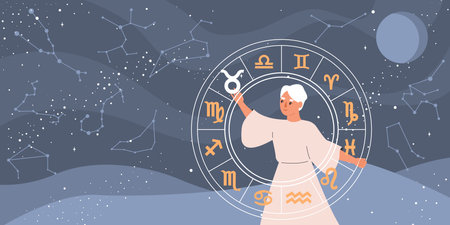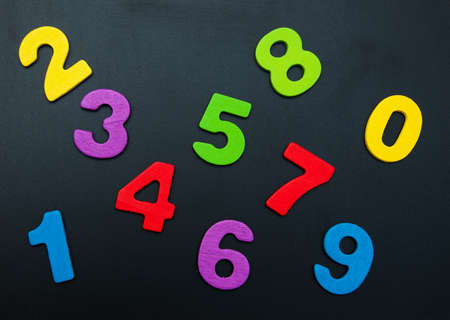Introduction: Evolving Indian Family Structures
In the vibrant social tapestry of India, the concept of family has always occupied a central role, shaping personal identities and societal values alike. Traditionally, Indian society was defined by joint family systems, where multiple generations coexisted under one roof, sharing resources, responsibilities, and a collective sense of belonging. These joint families were not only economic units but also custodians of cultural practices and rituals—astrology being one of the most prominent among them. However, over recent decades, urbanisation, increased mobility, changing aspirations, and economic factors have propelled a shift towards nuclear and blended family structures. Today’s Indian families are often smaller, more individualistic, and geographically dispersed, reflecting broader global trends while retaining unique local characteristics. Amid these transformations, astrology continues to maintain its significance, serving as a bridge between tradition and modernity. It offers guidance on matters ranging from marriage alliances to career choices, adapting itself to new family dynamics and generational expectations. This article delves into how evolving family forms in India interact with age-old astrological beliefs, exploring the shifting generational bonds that define contemporary Indian society.
Traditional Role of Astrology in Family Life
Astrology, or Jyotish Shastra, has historically played a central role in Indian family life, serving as both a spiritual guide and a practical tool for decision-making. Its roots can be traced back thousands of years, intertwining with the social fabric and cultural norms of India. The traditional reliance on astrology goes far beyond mere superstition; it is deeply embedded in rituals, values, and day-to-day functioning of households across generations.
Astrology in Matchmaking
One of the most prominent applications of astrology in Indian society is in the domain of matchmaking. Before any marriage proposal progresses, families customarily consult astrologers to compare horoscopes (Kundli Milan). The alignment of planetary positions is believed to ensure compatibility not only between the bride and groom but also between their families. This tradition persists across regions, religions, and socioeconomic groups, reflecting astrology’s perceived authority over personal happiness and social harmony.
| Aspect | Astrological Practice | Purpose/Outcome |
|---|---|---|
| Marriage Alliances | Kundli Matching | Assess compatibility & marital success |
| Name Selection | Nakshatra Based Naming | Ensure auspicious beginnings for newborns |
| Major Life Decisions | Muhurta (Auspicious Timing) | Select favorable dates for events like housewarming or business ventures |
Family Harmony & Conflict Resolution
Within the joint family system, astrology has historically been invoked to maintain peace and resolve disputes. Elders often consult astrologers when interpersonal tensions arise or when important decisions—such as property division or relocation—must be made. Astrological remedies (upayams) such as rituals, gemstone recommendations, or fasting are prescribed to counteract negative planetary influences believed to cause discord among family members.
The Role in Intergenerational Decision-Making
Elders’ authority in Indian households has often been strengthened by their role as interpreters or mediators of astrological guidance. Decisions regarding children’s education, career choices, and even investments have traditionally been aligned with astrological advice. This practice establishes a unique intergenerational bond: while young family members may seek autonomy today, elders’ reliance on astrology historically ensured collective participation and consent before major life choices.
Cultural Continuity and Change
Although urbanisation and modern values are influencing family structures and attitudes towards astrology, its traditional role remains evident during key milestones. Festivals, naming ceremonies, and marriages still see widespread astrological consultations. However, as new generations reinterpret these customs, the dynamic between astrology and family life continues to evolve—raising questions about how much of this legacy will persist amidst rapid societal change.

3. Astrology and the Modern Indian Family
Astrology, or jyotish shastra, continues to hold a unique space in the evolving landscape of Indian families, especially among millennials and Gen Z in metro cities like Mumbai, Delhi, and Bengaluru, as well as in semi-urban spaces such as Pune and Indore. While older generations often perceived astrology as an unquestionable guide for crucial decisions—ranging from marriage alliances to career choices—the younger cohorts are reinterpreting its significance through a more pragmatic and individualistic lens.
Shifting Attitudes Among Millennials and Gen Z
In metropolitan areas, there is a growing trend of viewing astrology less as a deterministic force and more as a tool for self-reflection and psychological insight. Many urban youth consult horoscopes via mobile apps rather than traditional family astrologers (pandits). They may still check their kundali before major events, but they often do so out of curiosity or social expectation rather than deep-seated belief. This selective engagement reflects a broader shift towards personal autonomy and skepticism toward rigid traditions.
Contrasts with Semi-Urban Perspectives
Semi-urban families, while influenced by urban trends, tend to preserve more collective approaches to astrology. Here, rituals like kundali-milan (horoscope matching for marriage) remain integral to family negotiations. However, even in these settings, younger members are questioning established norms, sometimes advocating for compatibility beyond astrological charts. The intergenerational dialogue on astrology thus mirrors broader negotiations around authority, identity, and modernization within Indian households.
Traditional vs Modern Interpretations
The tension between tradition and modernity is evident in how astrology is practiced today. For some families, it remains an anchor to heritage—a means of maintaining continuity amidst rapid social change. For others, particularly younger generations exposed to global perspectives, astrology is reframed as one among many tools for navigating uncertainty. This dynamic has led to the rise of digital astrology platforms that blend ancient wisdom with modern psychology, catering to the nuanced needs of contemporary Indian families.
Overall, the practice of astrology within modern Indian families is marked by negotiation—between past and present, communal expectations and individual choice. As family structures continue to evolve, so too does the role of astrology, reflecting both enduring cultural values and the aspirations of a new generation.
4. Generational Shifts: Negotiating Belief and Skepticism
Astrology, or jyotish vidya, has long played a central role in Indian families, shaping decisions from marriage alliances to naming ceremonies. However, the way different generations within modern Indian families engage with astrology reveals fascinating dynamics between faith and rationality. As the family unit evolves, so do the patterns of negotiating astrological advice—balancing reverence, practicality, and scepticism.
Attitudes Across Generations
In many urban Indian households today, three distinct generational perspectives often coexist under one roof:
| Generation | Typical Attitude Towards Astrology | Common Practices |
|---|---|---|
| Grandparents | Deep reverence; astrology seen as essential guidance for major life events | Consulting family astrologers for marriages, business, health; strict adherence to rituals and auspicious timings (muhurat) |
| Parents | Pragmatic respect; balancing tradition with modern logic | Seeking astrological input for major milestones but willing to bend rules if needed; blending scientific reasoning with belief |
| Young Adults | Skeptical curiosity; open-minded but not bound by tradition | Checking horoscopes online, using astrology as conversation starters or for fun; prioritizing personal choice over astrological diktats |
The Family Dialogue: Balancing Old and New Worldviews
The negotiation between these attitudes often plays out in everyday conversations and key family decisions. Grandparents may insist on matching kundlis (horoscopes) before a marriage proposal moves forward, citing stories of past successes attributed to astrological compatibility. Parents might act as mediators, respecting elders’ wishes while also considering their children’s preferences and aspirations. Young adults, shaped by global exposure and scientific education, may view astrology through a more critical lens—sometimes participating in rituals to maintain harmony but questioning their practical value.
The Compromise Culture in Modern Families
This intergenerational negotiation rarely leads to outright conflict. Instead, most families strive for compromise—honouring traditions without imposing them rigidly. For instance, a young couple may agree to an auspicious wedding date chosen by elders but opt for a courtship that defies traditional norms. In this way, astrology becomes less about rigid adherence and more about cultural continuity blended with individual agency.
Towards Mutual Respect and Understanding
The ongoing dialogue around astrology serves as a microcosm for larger generational negotiations within Indian society. By navigating belief and scepticism together, modern Indian families are redefining what it means to honour heritage while embracing change—a testament to India’s enduring spirit of adaptability and respect for diversity within the home.
5. Astrology, Technology, and Popular Culture
In recent years, astrology in India has experienced a remarkable revival, fuelled by technological advancements and the increasing influence of popular culture. With the proliferation of mobile apps like AstroSage and Co-Star, astrology has become accessible to urban youth and families across socio-economic backgrounds. These platforms offer instant kundli (birth chart) generation, daily horoscopes, compatibility analysis, and even live consultations with astrologers in regional languages, making traditional wisdom available at one’s fingertips.
Social media platforms such as Instagram, YouTube, and WhatsApp have also played a crucial role in transforming how Indian families interact with astrology. Influencers and content creators regularly share astrological insights using engaging formats—memes, reels, and story polls—that resonate with Gen Z and millennials. In addition, many Bollywood celebrities and cricket stars openly endorse astrology or share their reliance on vastu shastra and planetary guidance for career moves or marriage decisions. These public endorsements normalize astrological consultation as part of contemporary lifestyle choices.
This tech-driven resurgence is not merely cosmetic; it significantly impacts family decision-making processes. Parents and elders now combine advice from digital astrologers with personal beliefs when considering children’s education streams, marriage alliances, or business ventures. App-based astrology allows for quick matching of horoscopes without lengthy delays or social awkwardness, streamlining matrimonial negotiations among urban middle-class families.
Youth identity is also being reshaped by this digital phenomenon. While earlier generations may have viewed astrology as strictly ritualistic or reserved for major life events, today’s young Indians engage with zodiac memes, “Mercury retrograde” jokes, and personalized birth chart readings as tools for self-exploration and peer bonding. For many young professionals living away from home in cities like Bangalore or Mumbai, participating in astrology-themed online communities offers a sense of belonging that bridges traditional values with modern realities.
However, this integration of technology also introduces new complexities. The abundance of information—sometimes conflicting—can create confusion or anxiety about life choices. There are debates within families about which astrologer app is more “authentic” or whether celebrity endorsements dilute the sanctity of traditional practices. Yet overall, the intersection of astrology, technology, and popular culture is shaping a uniquely Indian way of navigating generational bonds—balancing respect for ancestral knowledge with the aspirations and autonomy of the digital age.
6. Case Studies: Real-Life Stories from Urban and Rural India
Understanding how astrology shapes modern family dynamics in India requires looking beyond broad trends and delving into lived experiences. The following short vignettes, drawn from both urban and rural settings, illustrate the rich diversity of Indian families engagement with astrology across different regions, socio-economic backgrounds, and generations.
Urban Bengaluru: Negotiating Tradition and Modernity
Ananya, a 28-year-old IT professional from Bengaluru, recounts her familys approach to marriage alliances. While her parents insisted on matching horoscopes before considering any proposal, Ananya herself was initially sceptical. However, after several discussions, she agreed to meet prospective matches only after basic astrological compatibility checks—a compromise that reflected generational negotiation between tradition and modern values.
Key Insight:
Among urban middle-class families, astrology remains a negotiating tool rather than an absolute mandate, symbolising respect for elders beliefs while accommodating individual choice.
Rural Uttar Pradesh: Astrology as Social Glue
In a small village near Varanasi, Ramesh, a 52-year-old farmer, describes how his extended family regularly consults the village astrologer for auspicious dates—be it for sowing crops or arranging weddings. For Rameshs teenage son, astrology is less about belief and more about community identity; participating in rituals fosters familial bonds even when personal faith varies.
Key Insight:
In rural contexts, astrology serves as a social institution that reinforces collective decision-making and intergenerational cohesion.
Mumbai Millennials: Selective Engagement
Sneha and Rajiv, a young couple living in Mumbais suburbs, share their nuanced stance on astrology. While they do not strictly adhere to daily astrological advice, they still consult a family astrologer during major life events such as home-buying or childbirth. Their approach reflects a pragmatic blend of cultural continuity and rational skepticism prevalent among educated millennials in metros.
Generational Perspective:
Younger generations may selectively engage with astrology—not out of fear or compulsion but as an inherited ritual offering comfort during uncertain transitions.
South Indian Joint Family: Bridging Generational Gaps
The Pillai family in Chennai exemplifies multigenerational households where elders strongly believe in astrological guidance for everything from naming grandchildren to starting new ventures. The younger members sometimes question these practices but ultimately participate out of reverence for family unity and ancestral customs.
Cultural Reflection:
Astrology here acts as both a bridge and buffer—helping navigate generational gaps by allowing respectful dissent within the framework of shared tradition.
Northeast India: Emergent Hybrid Practices
In Guwahati, Anita—a first-generation college graduate—observes that her parents still consult local pundits for decisions regarding property or education. Yet Anita herself prefers online astrological apps and WhatsApp groups to seek advice from a broader network. This hybrid engagement showcases how digitalisation is reshaping traditional practices without entirely replacing them.
Takeaway:
The digital era offers new avenues for astrological consultation, reflecting evolving generational attitudes while retaining cultural roots.
These real-life stories highlight the complex interplay between heritage and modernity in Indian families’ relationship with astrology. Whether as a means of negotiation, community bonding, or pragmatic adaptation, astrology continues to shape—and be shaped by—the changing bonds between generations across Indias diverse social landscape.
7. Conclusion: Rethinking Bonds and Beliefs
As India’s families continue to evolve amidst rapid urbanisation, digital connectivity, and shifting socio-economic realities, the interplay between astrology and generational relationships remains both dynamic and complex. Our exploration of Modern Families & Astrology: Changing Generational Bonds in Indian Society reveals that while traditional beliefs in astrology still hold significant sway—especially among older generations—their influence is being constantly renegotiated by younger Indians striving for individual autonomy.
Astrology, once a central pillar in family decisions regarding marriage, education, and career, is now often approached with a spirit of negotiation and adaptation. Many contemporary Indian families find themselves at the crossroads of respecting ancestral wisdom while simultaneously embracing scientific temper and personal choice. This cultural tug-of-war has resulted in new forms of engagement with astrology: some treat it as a guiding principle; others see it as a symbolic ritual; many view it as a source of comfort during uncertainty.
The findings suggest that astrology serves multiple roles—it can reinforce generational bonds by providing common ground for dialogue and shared traditions, yet it may also become a site of contestation when values diverge. Importantly, astrology’s ability to adapt, rather than its rigidity, ensures its continued relevance. Through WhatsApp consultations, online astrologers, and hybrid family rituals, Indians are reframing age-old practices to fit their modern realities.
In summary, the place of astrology in India’s modern families is not about static adherence or outright rejection but about negotiating meaning in everyday life. Whether strengthening family unity or fostering inter-generational debate, astrology remains a living tradition—one that reflects the broader journey of Indian society as it balances heritage with change. As we look ahead, understanding these shifting dynamics offers crucial insights into how Indian families will continue to navigate their bonds and beliefs in an ever-evolving social landscape.

